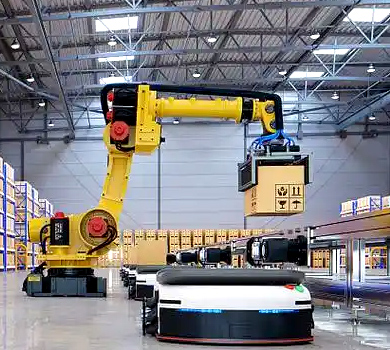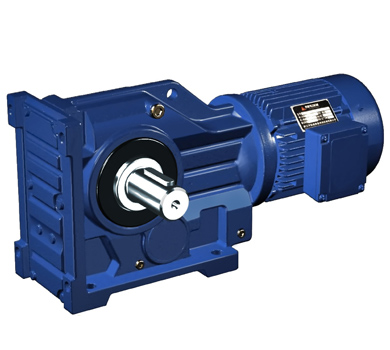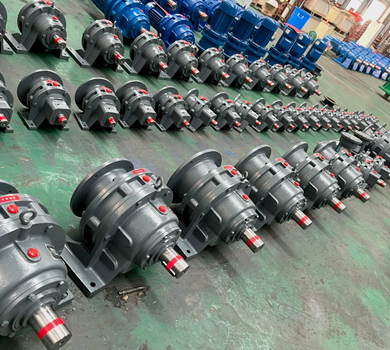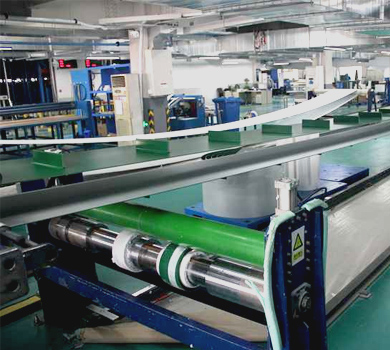Industry Challenges and Pain Points Analysis
Cylindrical battery can stamping systems are essential components in the new energy assembly sector, particularly within the rapidly growing electric vehicle and energy storage industries. These systems are responsible for accurately forming and compressing battery can shells to ensure structural integrity, electrical safety, and consistent performance. A typical setup includes high-speed stamping presses, robotic handling units, and precise motion control systems, all of which require reliable and high-performance gear drives to function effectively.
Despite the increasing demand for automation in this sector, there are several significant challenges that hinder optimal system performance and production efficiency. First, high-precision transmission is required to maintain consistent can dimensions and prevent misalignment during stamping. Second, the equipment must endure high-frequency operations with minimal maintenance, which places substantial stress on mechanical components such as gearboxes. Third, energy efficiency and compact design are critical for integration into modular and space-constrained production lines. Lastly, compatibility with industrial robots and other automation systems is a growing requirement, especially with the rise of collaborative and smart manufacturing platforms.
The current limitations of standard gear solutions include high backlash, poor heat dissipation, and insufficient torque density for high-speed and high-force operations. These shortcomings lead to increased downtime, higher maintenance costs, and lower overall equipment effectiveness (OEE). In addition, the environmental factors such as temperature fluctuations and clean room requirements add further constraints to component durability and reliability.
Key Role and Technical Requirements of Gear Drives in the Industry
In cylindrical battery can stamping systems, gear drives are at the core of ensuring motion precision and operational stability. The following technical requirements are critical for gear solutions in this context:
- High torque density to support high-stroke force and rapid acceleration/deceleration;
- High transmission accuracy (low backlash) to maintain dimensional control and reduce defects;
- Fast response time for real-time adjustments and synchronization with robotic systems;
- High reduction ratios in a compact design for space efficiency;
- Low noise levels to meet workplace safety and noise control standards;
- Lightweight and thin profile for integration with automated assembly lines;
- Long service life and high reliability to reduce maintenance intervals and downtime;
- Environmental adaptability, including high-temperature resistance and compliance with clean room standards (e.g., IP65, dust and moisture protection).
Waimica Harmonic Drive Solution for Cylindrical Battery Can Stamping Systems
Waimica has developed a dedicated harmonic drive solution that directly addresses the unique demands of cylindrical battery can stamping applications. Our harmonic drive gearboxes are engineered with advanced materials and precision manufacturing techniques to deliver performance comparable to, or even surpassing, international benchmarks.
- Compact and modular design – Waimica harmonic drives are designed for seamless integration into existing automation systems, with standardized input flanges and flexible mounting options;
- High precision and low backlash – With backlash ratings as low as 1 arc minute, Waimica harmonic drives ensure accurate positioning and minimal mechanical error;
- High torque capacity and dynamic performance – Our harmonic drives support a wide range of torque outputs and high-speed cycles, making them ideal for stamping and forming applications;
- High efficiency and low heat generation – Optimized gear profiles and lubrication systems reduce energy loss and extend operational life in demanding environments;
- Environmental resilience – Our gear drives are built with IP65 protection, enabling operation in high-temperature and high-dust environments, and are compatible with clean room production lines;
- Customization and application flexibility – Waimica offers tailored solutions for specific robot configurations and stamping forces, supporting a wide range of industry-specific needs.
| Model | Output Torque (N·m) | Backlash (arc min) | Reduction Ratio | Input Flange Type | Efficiency (%) | Operating Temperature (°C) | IP Rating |
|---|---|---|---|---|---|---|---|
| WHD-25 | 100-200 | ≤1.5 | 30-100 | ISO 9409-1 | 85 | -10 to +70 | IP65 |
| WHD-35 | 200-400 | ≤1.2 | 50-200 | ISO 9409-1 | 88 | -10 to +70 | IP65 |
| WHD-50 | 400-800 | ≤1.0 | 100-300 | Custom or ISO 9409-1 | 90 | -10 to +70 | IP65 / IP67 (optional) | The Waimica WHD series is specifically engineered to meet the high demands of cylindrical battery can stamping systems, combining high-precision harmonic drive technology with robust performance in challenging environments.







